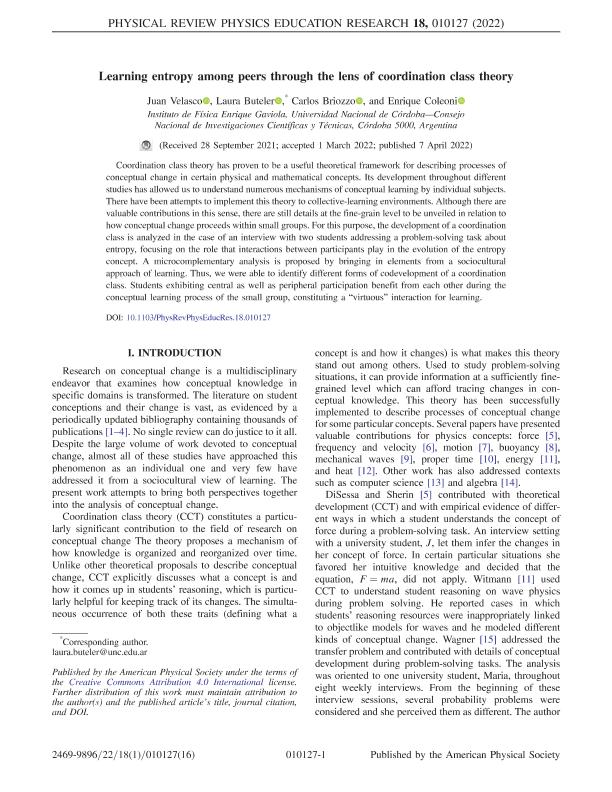Artículo
Learning entropy among peers through the lens of coordination class theory
Fecha de publicación:
07/04/2022
Editorial:
American Physical Society
Revista:
Physical Review Physics Education Research
e-ISSN:
2469-9896
Idioma:
Inglés
Tipo de recurso:
Artículo publicado
Clasificación temática:
Resumen
Coordination Class Theory has proven to be a useful theoretical framework for describing processes of conceptual change in certain physical and mathematical concepts. Its development throughout different studies has allowed us to understand numerous mechanisms of conceptual learning by individual subjects. There have been attempts to implement this theory to collective-learning environments. Although there are valuable contributions in this sense, there are still details at the fine-grain level to be unveiled in relation to how conceptual change proceeds within small groups. For this purpose, the development of a coordination class is analyzed in the case of an interview with two students addressing a problem-solving task about entropy, focusing on the role that interactions between participants play in the evolution of the entropy concept. A micro-complementary analysis is proposed, by bringing in elements from a sociocultural approach of learning. Thus, we were able to identify different forms of co-development of a coordination class. Students exhibiting central as well as peripheral participation benefit from each other during the conceptual learning process of the small group, constituting a "virtuous" interaction for learning.
Palabras clave:
Learning
,
Entropy
,
Coordination Class Theory
,
Interaction
Archivos asociados
Licencia
Identificadores
Colecciones
Articulos(IFEG)
Articulos de INST.DE FISICA ENRIQUE GAVIOLA
Articulos de INST.DE FISICA ENRIQUE GAVIOLA
Citación
Velasco, Juan José; Buteler, Laura Maria; Briozzo, Carlos Bruno; Coleoni, Enrique Andres; Learning entropy among peers through the lens of coordination class theory; American Physical Society; Physical Review Physics Education Research; 18; 1; 07-4-2022; 1-16
Compartir
Altmétricas




